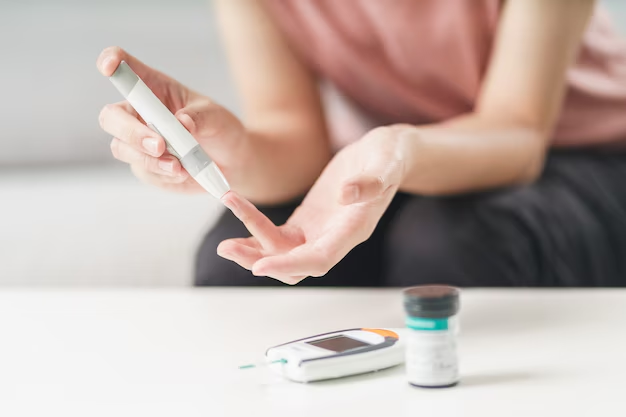Your Guide to Can Diabetics Fast
What You Get:
Free Guide
Free, helpful information about Diabetes FAQ and related Can Diabetics Fast topics.
Helpful Information
Get clear and easy-to-understand details about Can Diabetics Fast topics and resources.
Personalized Offers
Answer a few optional questions to receive offers or information related to Diabetes FAQ. The survey is optional and not required to access your free guide.
Is Fasting Safe for Diabetics? Here's What You Need to Know
For many, fasting is a way of life, whether it's for religious observance, weight loss, or detoxification. But if you’re one of the millions living with diabetes, the question becomes: can you fast safely? The answer is nuanced and largely depends on individual health conditions.
Understanding Diabetes and Fasting
Diabetes is a chronic condition where the body struggles to maintain proper blood sugar levels. It requires careful management through diet, exercise, and often medication. Fasting, especially without proper guidance, can disrupt this balance, leading to either hypoglycemia (low blood sugar) or hyperglycemia (high blood sugar).
Hypoglycemia is particularly dangerous as it can cause symptoms ranging from dizziness and confusion to seizures or even loss of consciousness. On the flip side, long periods of fasting could also lead to hyperglycemia, particularly if someone ends up overeating after breaking a fast.
Doctor's Advice is Crucial
Before considering fasting, consultation with a healthcare professional is essential. They can evaluate your specific health needs and provide tailored advice. Many factors influence whether fasting is safe, including:
- Type of diabetes (Type 1 or Type 2)
- Current medication regimen
- Overall health and any comorbid conditions
- Fasting goals and length
A doctor might adjust medication doses or offer alternative strategies for those keen on fasting.
Safe Fasting Practices for Diabetics
If given the green light by a healthcare provider, there are ways to fast more safely:
- Monitor Blood Sugar Frequently: Keeping track of your blood sugar levels can help prevent dangerous fluctuations.
- Start Small: Begin with intermittent fasting schedules, such as 12 hours of fasting followed by 12 hours of eating, to assess tolerance.
- Stay Hydrated: Dehydration can skew blood sugar readings and exacerbate symptoms.
- Choose Foods Wisely: Breaking a fast with nutrient-rich, balanced meals helps maintain sugar levels.
- Listen to Your Body: Feeling unwell while fasting is a clear sign to stop and consult with a healthcare provider.
Broadening the Discussion: Financial and Educational Support
For diabetics, managing healthcare needs can sometimes be financially overwhelming. Beyond personal health, consideration of government assistance programs, debt relief options, and educational grants can be integral to thriving despite the challenges.
Support Options to Consider
- Government Aid Programs: Various programs offer financial support for medical expenses, such as Medicare or Medicaid, designed to ease the economic burden.
- Debt Relief Options: Look into debt consolidation or interest reduction plans to manage medical debts.
- Affordable Healthcare Options: Numerous clinics offer sliding scale fees based on income, providing necessary care with reduced costs.
- Credit Solutions: Some credit companies provide medical expense-specific offers or deferments.
- Educational Grants: Scholarships and grants tailored for those with chronic conditions can alleviate the burden of education costs.
For individuals managing diabetes, whether considering fasting or seeking ways to mitigate financial strain, understanding your options can empower informed decision-making.
Financial Assistance and Support Options 📑
- 💸 Government Aid Programs: Medicare, Medicaid, Affordable Care Act subsidies
- 📚 Educational Grants: Specific scholarships for those with diabetes or disabilities
- 🩺 Affordable Clinics: Community health centers with sliding scale payments
- 🔄 Debt Relief: Consolidation programs or interest negotiation services
- 💳 Credit Solutions: Medical expense-focused credit options or deferments
Prioritizing health doesn't only rely on personal choices but also on knowing and accessing available resources. Whether it's fasting or finances, staying informed is key.
What You Get:
Free Diabetes FAQ Guide
Free, helpful information about Can Diabetics Fast and related resources.

Helpful Information
Get clear, easy-to-understand details about Can Diabetics Fast topics.

Optional Personalized Offers
Answer a few optional questions to see offers or information related to Diabetes FAQ. Participation is not required to get your free guide.


